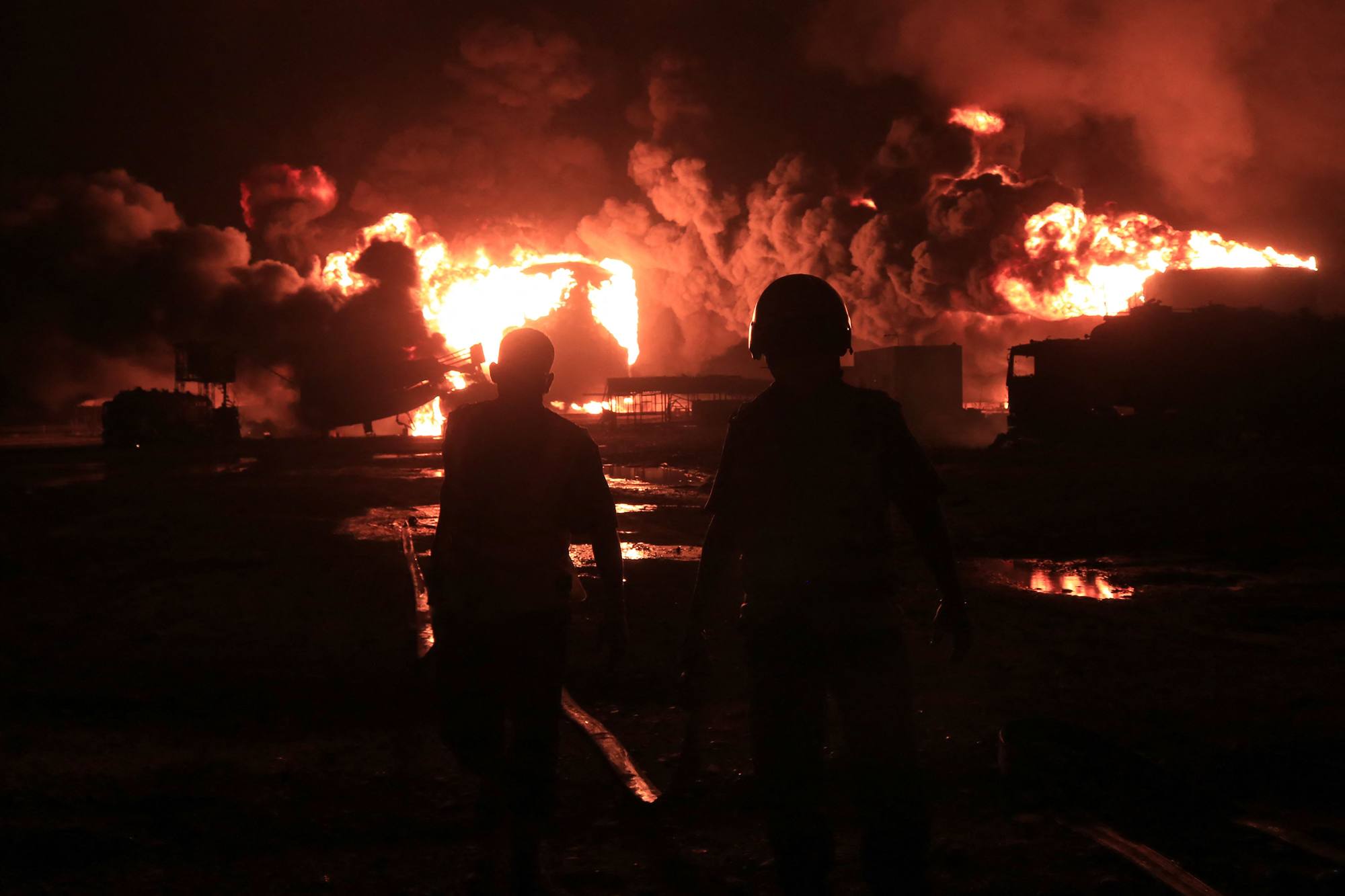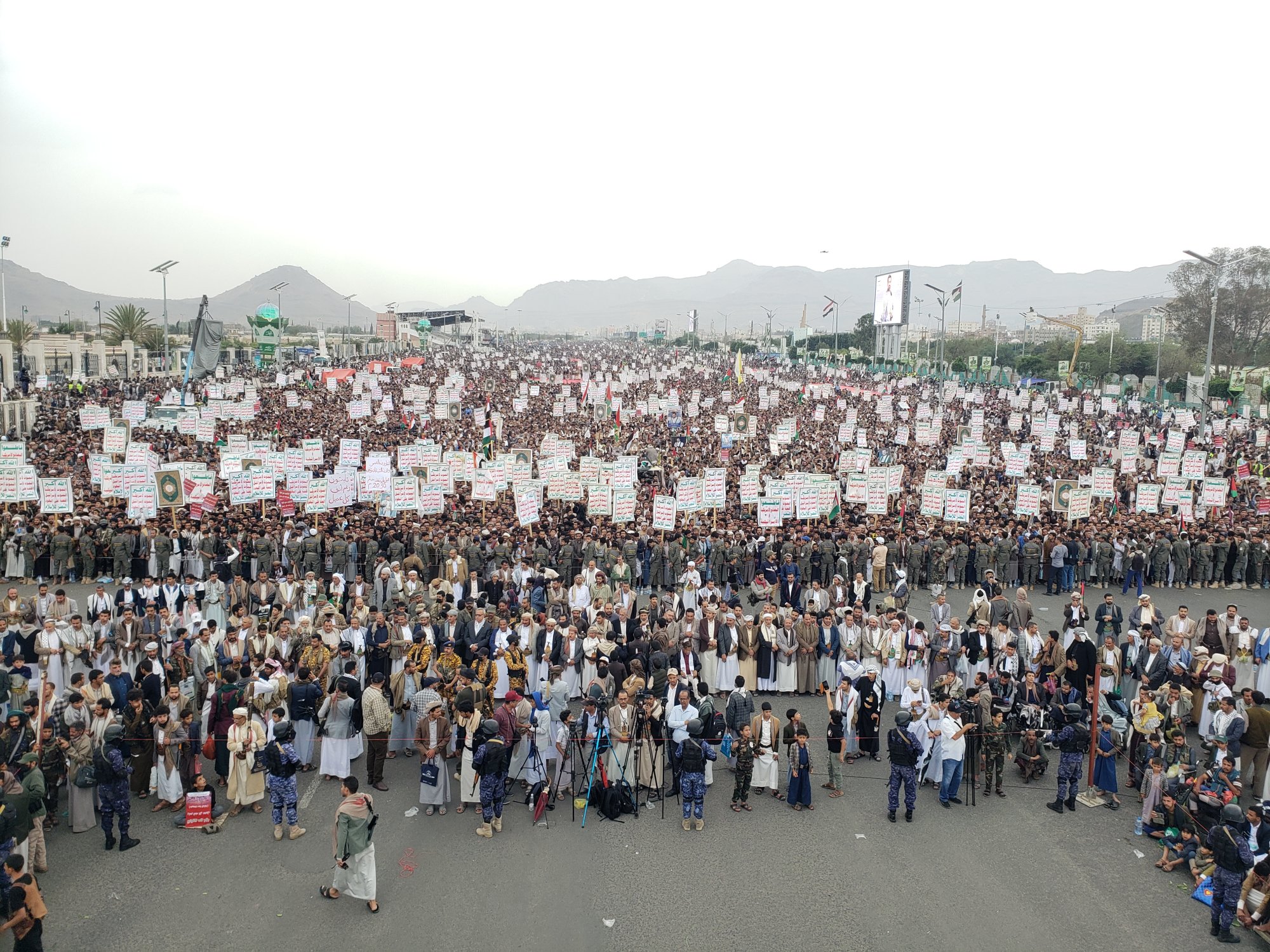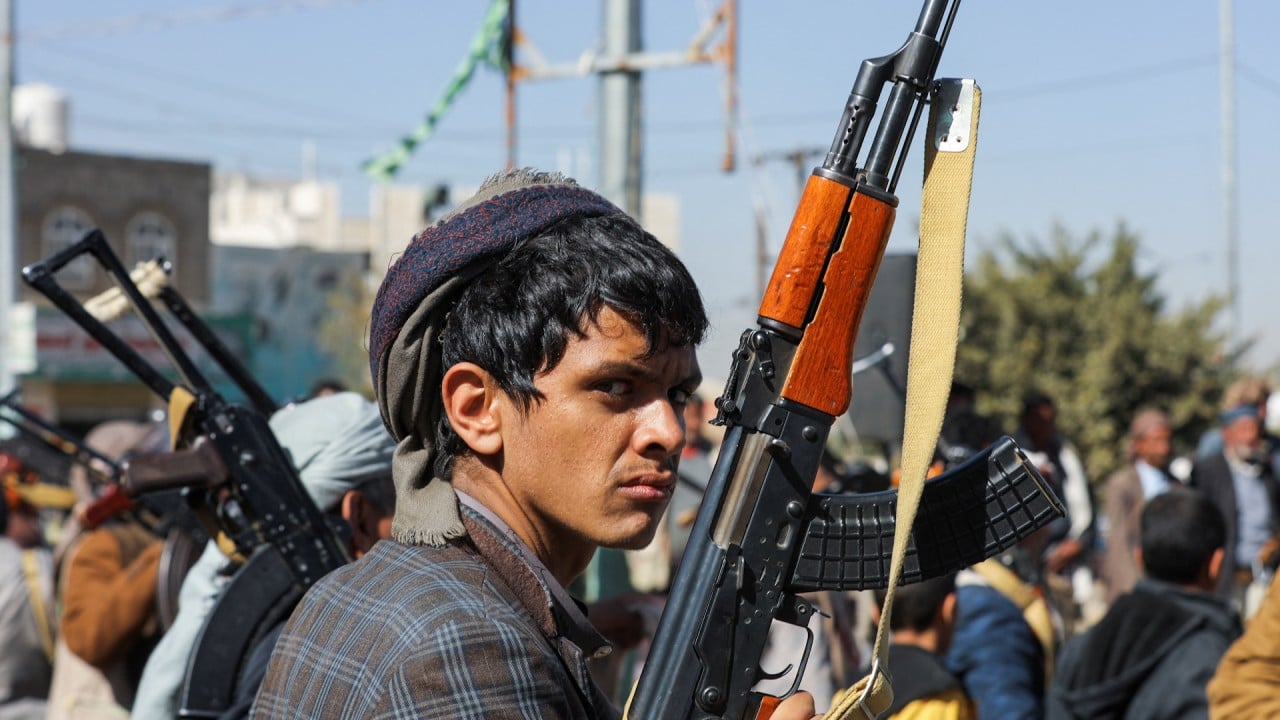Analysts say Israel’s attack on Yemen will encourage the Houthis

Since the war between Israel and Gaza began in October, the Houthis have positioned themselves as a central member of Tehran’s regional network of allies, which also includes armed groups in Lebanon, Syria and Iraq.
They have launched nearly 90 attacks on merchant ships in the Red Sea and Gulf of Aden since November, and on Friday a Houthi drone attack breached Israel’s complex air defenses, killing one person in Tel Aviv, triggering the Israeli attack on Hodeidah.

Hours after the attack on Hodeidah, hundreds of Yemenis took to the streets in the rebel-controlled capital Sanaa, chanting “Death to America, death to Israel” and waving Palestinian flags.
“For the rebels, these attacks are a powerful propaganda tool. They can mobilize their supporters by portraying themselves as defenders against a new external aggressor,” says Afrah Nasser, a fellow at the Arab Center think tank in Washington DC.
“This will help attract new recruits and strengthen their base.”
The rebels have withstood repeated attacks by the US and Britain since January aimed at repelling Houthi attacks on shipping.
Gregory Johnsen, deputy director of the Institute for Future Conflict at the US Air Force Academy, said the Houthis “want nothing more than to be seen fighting against the ‘American-Zionist’ alliance.”
In a social media post, the Yemen expert said: “This helps them domestically by linking the Houthi’s goals with the Palestinian cause, which is very popular in Yemen.”
It will also “dampen domestic resistance and neutralize local rivals,” he said.

The Houthis captured the capital Sanaa in 2014, and a Saudi-led coalition intervened the following year to support the internationally recognized government.
Almost a decade of war has failed to weaken the rebels. They control large parts of the country, including large parts of the Red Sea coast.
“The past decade of internationalized civil war in Yemen shows that the Houthi leadership is not deterred by military strikes,” says Elisabeth Kendall, a Yemen expert at the University of Cambridge.
“The Houthis are emboldened by their growing notoriety and enjoy their constructed status as defenders of Palestine,” she said.
The port of Hodeidah, a key access point for fuel imports and international aid to Yemen’s rebel-held areas, remained largely untouched during the war.
Andreas Kreig, a military analyst and lecturer in security studies at King’s College London, said the Israeli attack would “not significantly disrupt” the Houthis’ arms supply chain.
“Components for missiles can be delivered through different routes and do not require huge port facilities,” he said, adding that “Iran has highly diversified supply chains and will find different routes” to deliver weapons components that can be assembled domestically.
However, the Houthis will not emerge unscathed from the Israeli attack. It could hamper future fuel imports and has already sparked fears that shortages could arise in the wake of a severe financial crisis.
The attack, which also destroyed storage tanks, “will cause severe fuel shortages throughout northern Yemen and disrupt vital services such as hospital diesel generators,” said Mohammed Albasha, a Middle East analyst at the U.S.-based Navanti Group.
“In addition, the damage to the Hodeidah power plant, combined with the scorching summer heat, will significantly worsen the suffering of the local population,” he said, adding that reconstruction will be “both costly and difficult.”
Yemen expert Nicholas Brumfield said the attack would have “devastating humanitarian consequences for the millions of ordinary Yemenis living in Houthi-controlled Yemen.”
This will “drive up prices not only for fuel but for everything transported by truck,” he said on social media.




